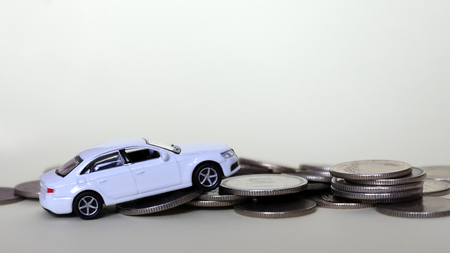Understanding Credit Scores and Leasing
If you’re thinking about leasing a car in the United States, your credit score plays a major role in determining what options are available to you. Credit scores are three-digit numbers that reflect how reliably you’ve managed debt in the past, and most dealerships will check your score before approving a lease application. This is because leasing a car is essentially a long-term rental agreement, and dealerships want assurance that you’ll make all your monthly payments on time. Generally, a higher credit score means you’re more likely to qualify for better lease terms, such as lower interest rates and smaller down payments. On the other hand, having bad credit can limit your choices or lead to higher costs. Understanding this process helps set realistic expectations when shopping for a lease with less-than-perfect credit.
Challenges of Leasing with Bad Credit
Leasing a car can be especially challenging if you have a low credit score. Most dealerships and leasing companies use your credit history to determine your eligibility and the terms of your lease agreement. When your credit is less than ideal, you may face several obstacles that can make the process more difficult and expensive.
One of the main challenges is higher interest rates, also known as money factors in leasing. Lenders see applicants with poor credit as higher risk, so they often compensate by charging more for the lease. This means your monthly payments could be significantly higher compared to someone with good credit. In addition, you may encounter stricter terms such as larger down payments, limited vehicle choices, or shorter lease periods.
| Lease Term | Good Credit | Bad Credit |
|---|---|---|
| Interest Rate (Money Factor) | Low | High |
| Down Payment | Standard or Low | Higher Required |
| Vehicle Selection | Wide Range Available | Limited Options |
| Lease Approval Process | Smoother & Faster | More Documentation Needed |
| Lease Terms Length | Flexible Options | Often Shorter Terms |
It’s also common for leasing companies to require a co-signer if your credit is on the lower end. A co-signer with better credit can help you secure a lease but also takes on responsibility if you default. Lastly, keep in mind that not all dealerships are willing to work with applicants who have bad credit, which can further limit your options.

3. Exploring Your Leasing Options
If you have bad credit, leasing a car may seem challenging, but you still have several viable options to consider. Many dealerships and financial institutions offer special financing programs designed specifically for individuals with less-than-perfect credit. These programs may come with slightly higher interest rates or stricter terms, but they can provide a pathway to getting behind the wheel of a new vehicle.
Another strategy is to bring in a co-signer. A co-signer with good credit can help strengthen your lease application, potentially securing better terms and lower monthly payments. However, keep in mind that your co-signer will be equally responsible for the lease if you miss any payments, so it’s important to choose someone who understands the risks involved.
You might also consider making a higher down payment. By putting more money down upfront, you reduce the amount you need to finance and show lenders that you’re serious about honoring your lease commitment. This can make leasing approval easier and sometimes even improve your lease terms despite your credit situation.
In addition, some dealers offer lease here, pay here programs tailored for customers with credit challenges. These options usually mean you’ll make payments directly to the dealership rather than through a traditional lender. While this can be convenient, its wise to review all terms carefully as these leases often come with higher costs over time.
Exploring these different options can help you find a leasing solution that fits your financial circumstances and gets you on the road, even if your credit isn’t perfect.
4. Tips to Improve Your Chances
If you’re considering leasing a car with bad credit, don’t get discouraged—there are several proactive steps you can take to boost your approval odds. Here are some practical strategies that can help you present yourself as a more reliable lessee to dealerships and leasing companies.
Check and Improve Your Credit Score
Start by pulling your credit report from all three major bureaus (Equifax, Experian, and TransUnion). Look for any errors or outdated information that could be dragging down your score, and dispute them if needed. Even small improvements in your credit score can make a difference in the terms you’re offered.
Gather Documentation to Prove Financial Stability
Lenders want reassurance that you can keep up with monthly payments. Bringing documentation like recent pay stubs, tax returns, or bank statements can work in your favor. If possible, provide proof of steady employment or additional sources of income.
Save for a Larger Down Payment
Offering a higher upfront payment reduces the lender’s risk and shows your commitment. This might also help lower your monthly payments and could improve your chances of getting approved for a lease.
Consider a Co-Signer
If you have a family member or friend with good credit who’s willing to co-sign the lease, this could significantly strengthen your application. A co-signer shares responsibility for the lease, making lenders more likely to approve you even with less-than-ideal credit.
Quick Reference: Strategies to Boost Approval Odds
| Strategy | How It Helps |
|---|---|
| Review & fix credit report errors | Raises your credit score quickly if inaccuracies are found |
| Provide proof of income/stability | Gives confidence to lenders about your ability to pay |
| Larger down payment | Lowers lender risk and may improve lease terms |
| Add a co-signer with good credit | Strengthens your application considerably |
| Pay off outstanding debts | Lowers your debt-to-income ratio, improving approval odds |
Stay Patient and Persistent
The process might take extra time when leasing with bad credit. Remember, every step you take to show financial responsibility increases the likelihood of success. Patience—and preparation—will go a long way toward getting you behind the wheel of your next car.
5. Alternatives to Leasing
If leasing a car seems out of reach due to bad credit, don’t worry—you still have plenty of options. One practical alternative is buying a used car outright or with an auto loan. Used cars typically cost less than new ones, and you may be able to secure financing through a local bank or credit union, which sometimes offers more flexible terms for those with less-than-perfect credit. Another increasingly popular option is car subscription services. With these programs, you pay a monthly fee that usually covers insurance, maintenance, and roadside assistance, giving you access to a range of vehicles without the long-term commitment of a lease or loan. Additionally, consider ride-sharing apps or public transportation if your driving needs are minimal. Exploring these alternatives can help you stay mobile while working on improving your credit score for future opportunities.
6. What to Watch Out For
When you’re leasing a car with bad credit, it’s important to stay alert and protect yourself from potential risks. Unfortunately, there are scams and predatory lenders who target people in challenging financial situations. Here’s what you need to look out for before signing any lease agreement.
Beware of Too-Good-to-Be-True Offers
If a deal seems too good to be true, it probably is. Some companies advertise extremely low monthly payments or promise guaranteed approval without even checking your credit. These offers often come with hidden fees, sky-high interest rates, or unfavorable terms that can end up costing you much more in the long run.
Watch Out for Predatory Lenders
Predatory lenders may use high-pressure tactics to get you to sign quickly or gloss over important details about the lease. They might push add-ons you don’t need or charge excessive penalties for early termination or missed payments. Always take your time, ask questions, and don’t let anyone rush you into making a decision.
Read the Fine Print
Before signing anything, carefully review the entire lease agreement—especially the fine print. Pay close attention to mileage limits, maintenance requirements, fees for excess wear and tear, and what happens if you want to end the lease early. Make sure you fully understand all the terms and ask for clarification if anything seems unclear.
Verify the Dealer’s Reputation
Check online reviews and ratings for any dealership or leasing company you’re considering. The Better Business Bureau (BBB) website can help you see if there have been complaints or unresolved issues. A reputable dealer will be transparent about their terms and willing to answer all your questions.
Your Best Defense: Stay Informed
The best way to avoid scams and predatory practices is by educating yourself about the leasing process and knowing your rights as a consumer. Don’t hesitate to walk away if something doesn’t feel right—there are always other options available. Taking these precautions will help ensure your car leasing experience is safe and beneficial, even with less-than-perfect credit.

